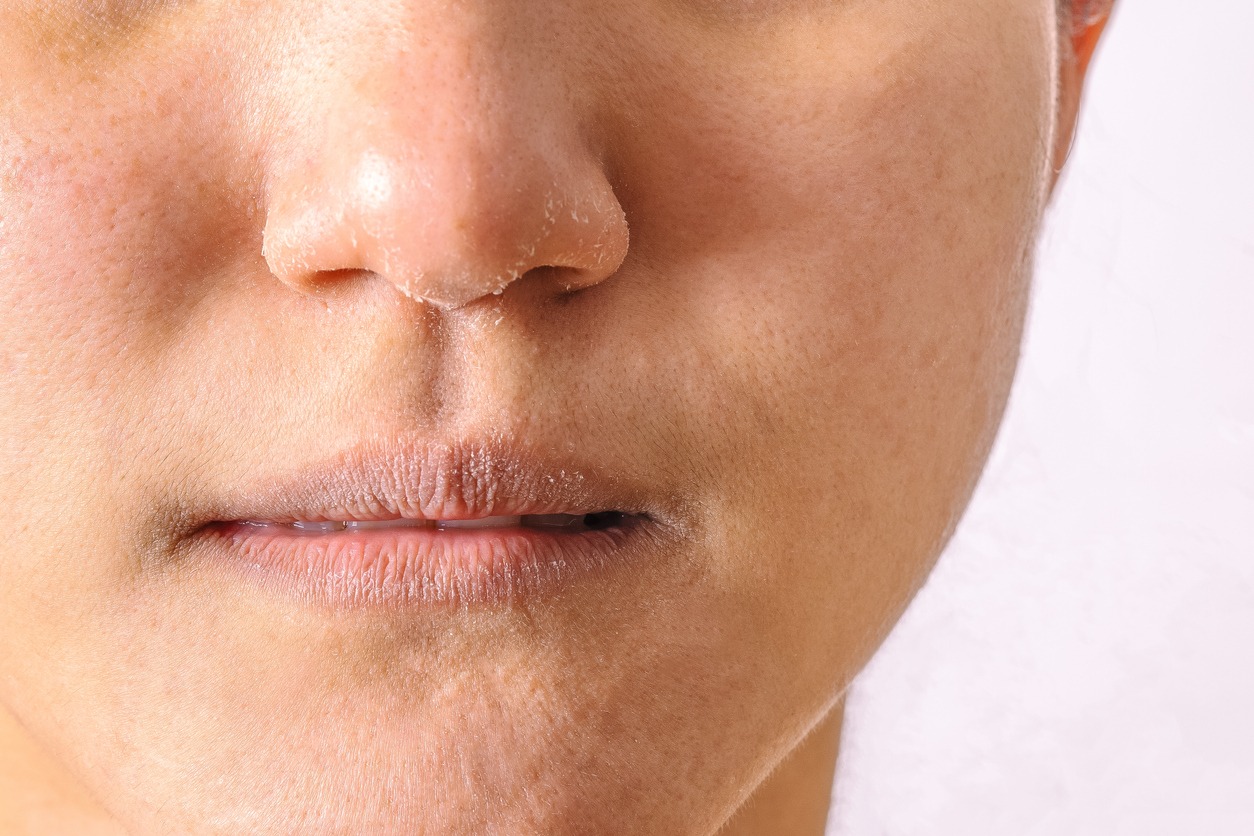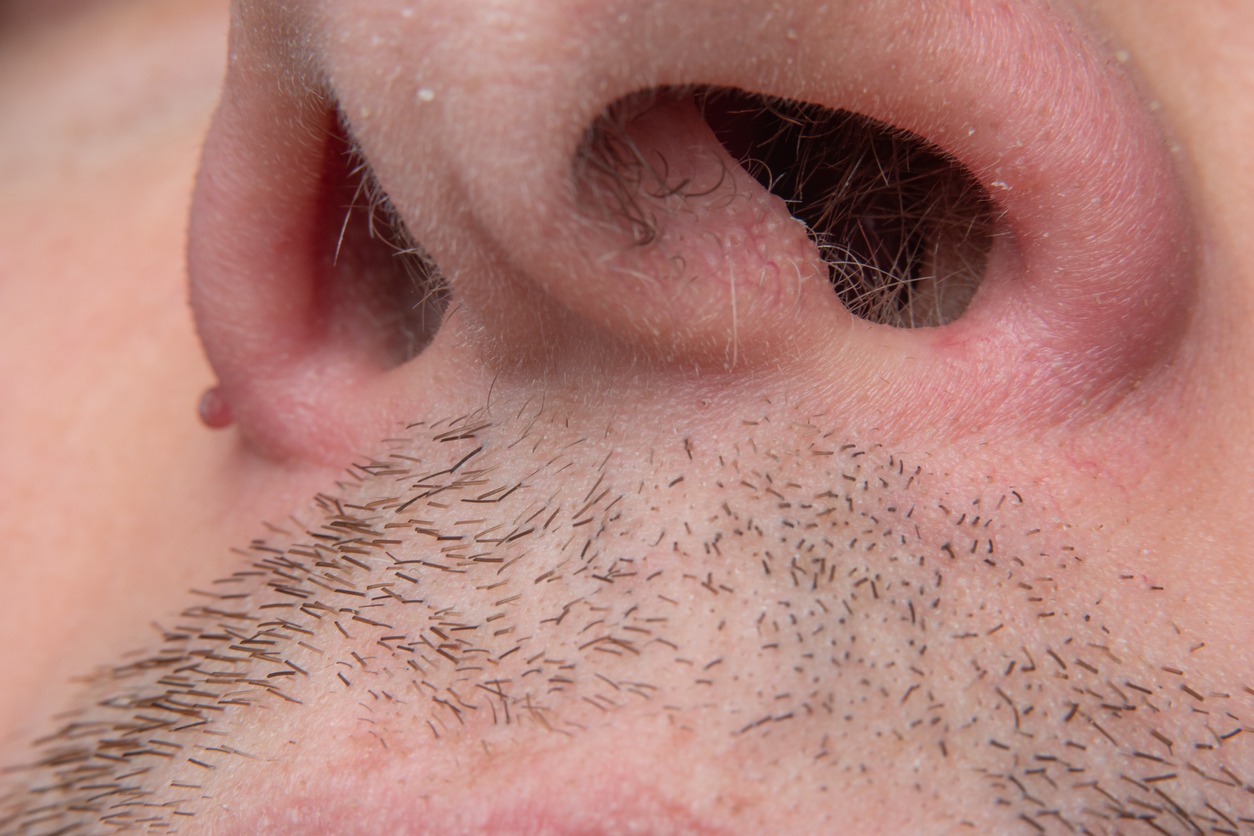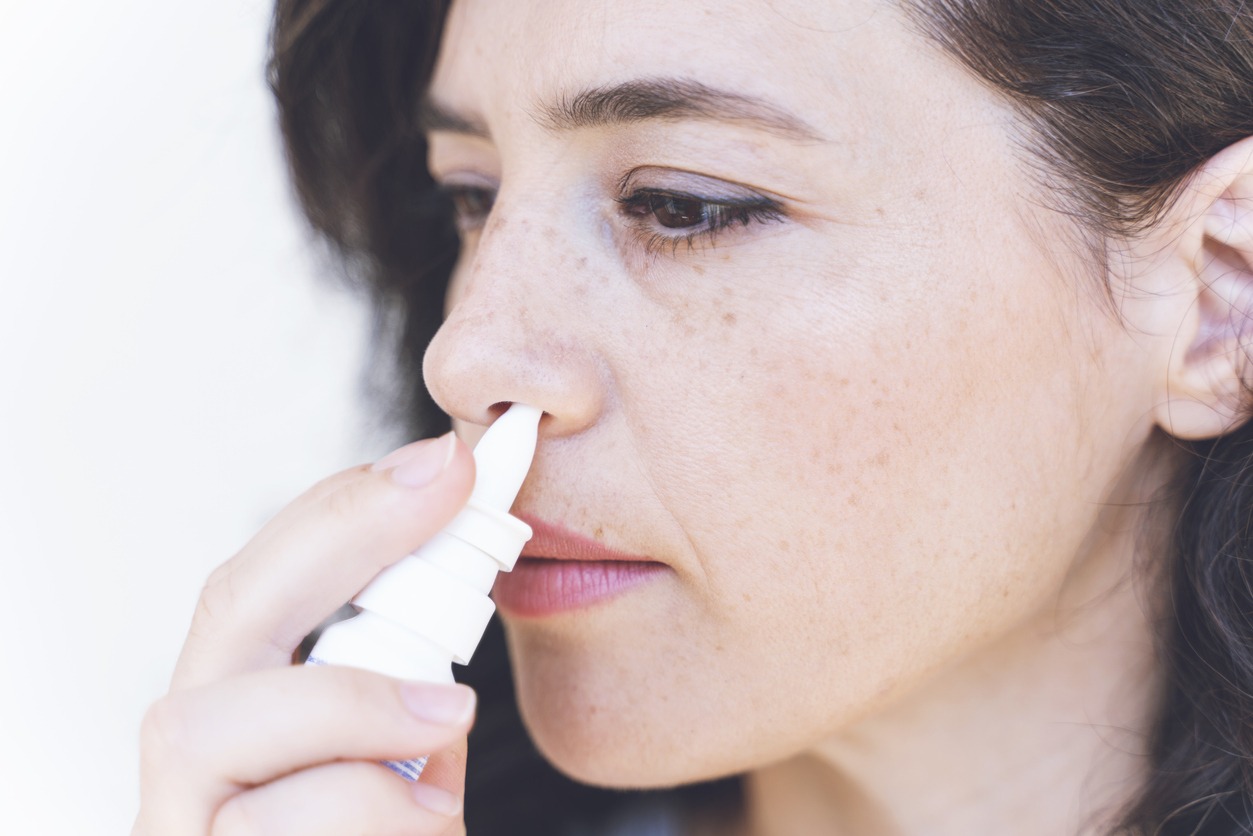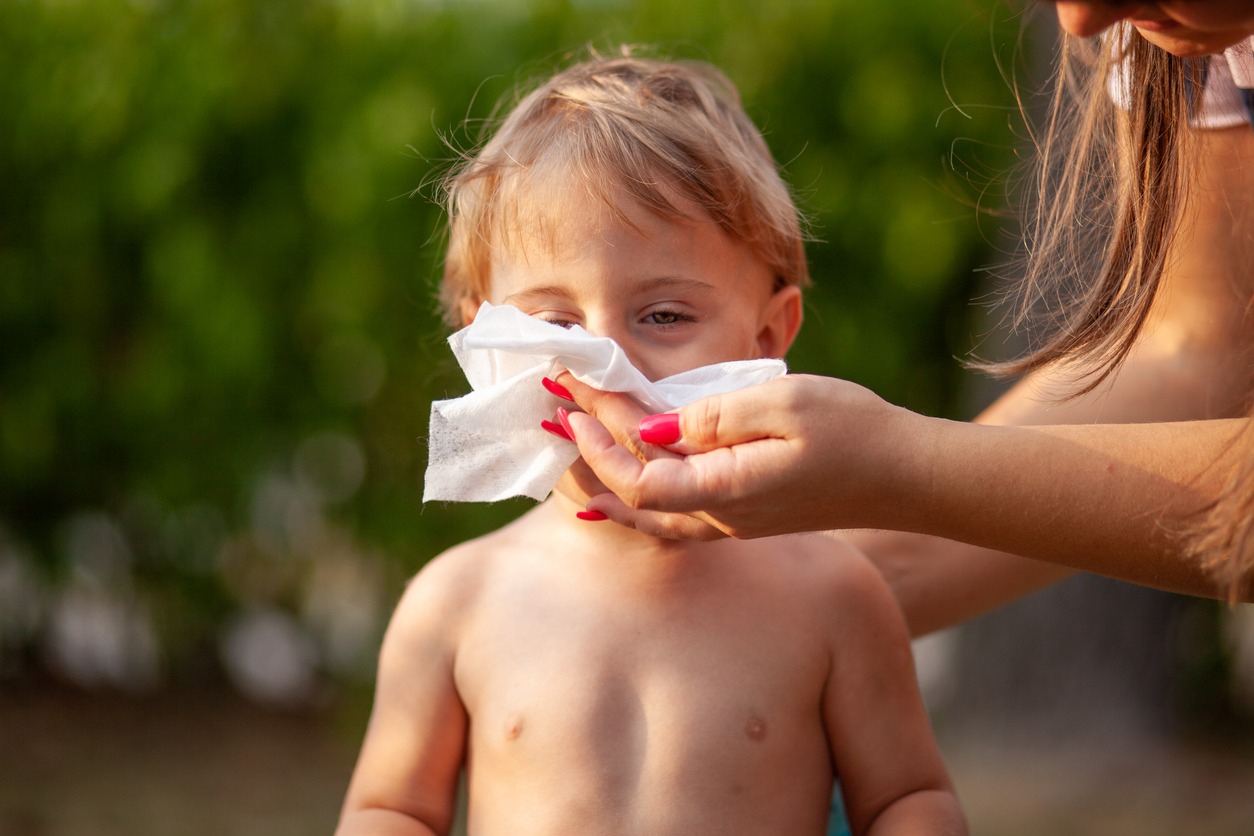It can be quite unpleasant and challenging to control whether the dryness is external or internal. This is especially true if you also suffer from cold symptoms that make you want to massage your nose more frequently. Dryness of the nose can happen by itself or in tandem with other nasal symptoms like congestion. Crusts, scabs, and bleeding are possible side effects on the skin around the nose.
You can get some relief if you know what’s causing these symptoms. For some people, the source of their occasional nose dryness is obvious. However, for others, a dry nose is a chronic issue that significantly impacts their daily lives. Read on to find out what causes dryness in the nasal passages and what you can do about it.
What is a Dry Nose?
Every day, mucus is secreted by the lining of your nasal passages. This thick fluid helps to keep the nasal passages moist and traps foreign particles like dust and pollen that could otherwise irritate. Your nose may become painfully dry if you don’t produce enough mucus. In addition, if the air around you is dry, your nasal passages will dry out, and the mucus will condense into a crusty mass that will make breathing difficult. If this happens, you may have to resort to breathing through your mouth, which can further dry up your throat and mouth.
When exposed to dry air, your nose will likely become irritated. In addition, many people have dry noses because they use nasal sprays, decongestants, and antihistamines too frequently. Extremely dry or hot temperatures might lead to a dry nose since the human nose requires a certain degree of humidity to function effectively. Nasal dryness may be brought on by overexposure to air conditioning, dry, hot weather, low humidity, or both.
Sjogren’s syndrome is one of the uncommon cases in which a dry nose is an indicator of a more significant health problem. This autoimmune disorder manifests in dry skin and cracked lips all over the body. Dry nasal passages are a symptom of this condition due to insufficient tear flow. An itchy, scabby, nose-bleeding, burning or congested nose isn’t dangerous in and of itself, but it can be if you don’t take care of your dry nose.
What Causes Dry Nose?
Low relative humidity in the air is a major cause of nasal dryness. Possible causes of dryness are listed below.
- Environment – If you live in a hot and dry region, your climate may be to blame for your chronic dry nose. The high rate of evaporation in the nose can generate a dry sensation.
- Rhinitis – Infected noses can produce either excessive nasal mucus production and a runny nose or a dry nose
- Nasal Sprays – When used for an extended period or with multiple nasal sprays, a dry nose can occur. Prolonged use of the sprays may have unintended consequences. If you need to spray for longer than three to four days, you should talk to your doctor about alternatives.
- Medication Adverse Effects – The purpose of antihistamines, decongestants, and oral liquids is to dry out your respiratory system and, in turn, cause a dry nose. The rare autoimmune condition known as Sjögren’s syndrome has been linked to drying up the body’s mucous membranes. As a result, you can have irritation in your eyes, nose, and other damp body regions.
- Hormonal Change – Women over 40 often experience this condition, making it a typical explanation for their dry nasal passages. Changing hormone levels as women age contributes to dry nasal passages and throat.
- Hypertension – It is critical to have your blood pressure checked by a medical practitioner if you are experiencing a dry nose and bleeding. Nasal bleeding can occur for several reasons, including hypertension and a dry nose.
Tips for Treating Dry Nose
Many people experience a common symptom of a dry nose during cold and allergy season. Dry noses are annoying, but many counter and natural solutions are available to alleviate the problem. Here is a list of simple treatments you can try at home that has proven effective.
1. Drink a lot of water
Keep drinking water at a re to keep your tissues from drying out, especially in the chilly winter months. To avoid becoming even more dehydrated, you should avoid alcohol and drinks with a high sugar content.
2. Raise the humidity levels
The dry air of winter can irritate the nasal passages and make breathing difficult. To enhance the humidity in a room, a humidifier can be used. Humidifiers should be cleaned at least twice weekly to prevent the formation of mold and germs. You may also get humidifiers that can sterilize themselves, so you don’t have to worry about cleaning them.
3. Warm up with some baths
You may moisturize your skin and improve the humidity in a room by taking a sauna or steam bath. The increased humidity of a steam bath can soothe a dry nose. However, prolonged contact with steam can lead to skin dryness, so keeping a safe distance is best.
4. Always use moisturizer
Moisturize regularly with a water product to ensure your skin is always supple and healthy. Moisturizer should be reapplied after bathing the skin or whenever its effects seem to wane. Even petroleum jelly, used in very small doses, can help relieve dryness in the nasal passages. Large amounts of this thick moisturizer applied to the nasal cavity may be inhaled and go throughout the respiratory system. If the jelly leaks into your lungs, it might cause an abscess or other serious consequences. Avoid this by dabbing a tiny amount of petroleum jelly onto a cotton swab or your finger and rubbing it gently into the affected area.
5. Make use of saline solution sprays
Nasal washes, gels, and sprays formulated with saline are useful for moistening and clearing nasal passages. According to one study, the nasal spray can help with dry nose symptoms. However, decongestant nasal sprays can have certain unintended consequences if used excessively.
6. Try using essential oils
Since commodities are acceptable for internal usage, they can be utilized to alleviate a dry nose. Some suitable oils are coconut oil, almond oil, and clarified butter. You can apply these oils to your nasal cavities using a cotton swab. It’s best to avoid any oil you might be allergic to.
7. Do not take any drugs that can induce nasal dryness
Medications like diuretics and those with severe anticholinergic adverse effects are on a list of those linked to nose dryness. Therefore, if you have a history of chronic dry noses, it is important to discuss your prescription regimen with your doctor to prevent or alleviate the issue.
8. Make use of wet wipes or facial tissues
Use a nasal saline spray to wet a facial tissue, and then use it to clean the dry skin inside your nostrils gently. Wet baby wipes can serve the same function.
9. Eat lots of hot and spicy meals
Hot and spicy foods can help relieve a dry nose by increasing mucus production.
10. Quit using tobacco products
Dryness in the mouth and nose is made worse by smoking and vaping. Second-hand smoke is harmful to everyone, not just smokers.
11. Reduce the use of space heaters
Heating systems in the home can deplete the humidity in the air, leading to discomfort and health problems if used for an extended period.
12. Cut down on your alcohol intake
Keep your alcohol consumption to a minimum because it is a diuretic and can cause dehydration.
13. Stop picking your nose
You may be accidentally irritating your nasal passages. Nose irritation and dryness can be brought on by picking at the nose, a habit many of us have developed unintentionally. You can give your nose a chance to rehydrate and return to normal if you learn to recognize when you’re rubbing or picking it and then take steps to break the habit. Also, you don’t want to introduce unwanted bacteria or viruses to your nose by sticking your finger up.
14. Give your house a thorough cleaning
Indoor dust accumulation may have physiological effects on the nose, making it more susceptible to dryness and other unpleasant symptoms. Environmental pollutants can also provoke these symptoms. You can reduce exposure to the triggers that cause or exacerbate your dry nose by keeping your home and workplace clean. This includes vacuuming carpeted areas in addition to dusting all other surfaces.
15. Reduce your altitude
Dry nasal passages have been linked to being at a high altitude. Those who are frequently at high elevations may be less prone to dry noses due to the altitude. However, if you experience a dry nose after visiting a high altitude, going back down to sea level may help.
Conclusion
While the discomfort of nasal dryness is real, it is usually not a medical emergency. Self-care procedures that focus on keeping the skin and body hydrated should be sufficient to solve the issue. Itching can be soothed by using a humidifier, steam shower, or drinking more water.
However, if not treated, it can lead to infections, headaches, and sinus attacks. Therefore, if your condition does not improve with at-home care, you should see a doctor to rule out more serious causes. If the medication you’re taking is causing your nose to dry out, you should switch to something else.
Constant nasal dryness could be a symptom of a more serious health problem or a pharmaceutical adverse effect. A medical professional can determine the cause and provide any necessary adjustments to treatment. Keep in mind that the substances in the home remedies for the dry nose are all-natural and risk-free. That is why you should see a doctor if your nasal dryness persists for more than a few days.





